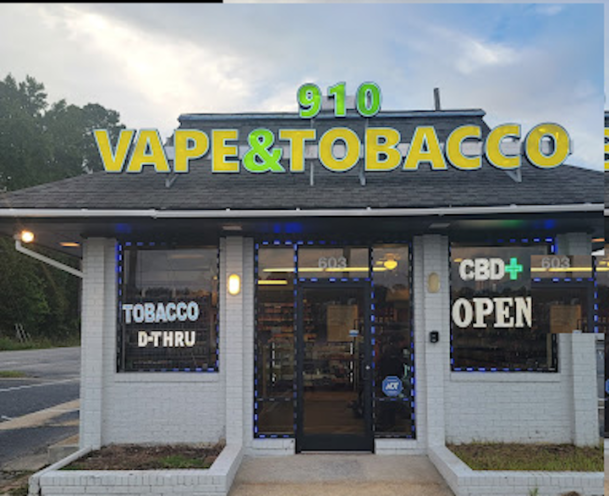Columbus County could soon be limiting the locations of vape and tobacco shops in unincorporated areas.
Commissioners instructed County Manager Eddie Madden at the Sept. 3 meeting to research ways the county could better regulate vape shops. Commissioners Laverne Coleman and Giles “Buddy” Byrd said they were concerned that teens were obtaining products such as kratom and other synthetic substances at area stores.
“I know there are underage children, teenagers, walking in and buying stuff in these stores,” Coleman said.
Byrd said he has heard from several families whose children used different products from the stores.
“Some of that stuff is far more powerful than marijuana and as addictive as illegal drugs,” he said. He said he was concerned about the proximity of some vape stores to schools, specifically a vape store beside Whiteville High School and another at Lake Waccamaw that is within walking distance of the Boys and Girls Home and a short distance from the East Columbus campus.
Madden noted that the county can not regulate businesses within municipal boundaries, but reasonable rules could be put in place to prevent stores in rural areas from being too close to schools, churches and other institutions. He told the board that while they cannot prohibit legal businesses, they can regulate where such businesses can operate.
State officials recently began cracking down on so-called “gas station heroin,” also known as tianeptine.
The substance mimics the euphoric effects of heroin and triggers hallucinations, confusion, sweating, rapid heartbeat, slowed or stopped breathing, and loss of consciousness. It was marketed as an attention-enhancement supplement that has become popular with teenagers. The substance was popular among teens because of wide availability and no age requirements for purchasing.
In July, tianeptine became a Schedule II substance, defined as having high potential for abuse that may lead to severe psychic or physical dependence. Gov. Roy Cooper signed legislation banning tianeptine in July, classifying it as a dangerous substance with no medicinal value.
Legislators reported being shocked by the large numbers of responses when the proposal was floated earlier this year. Parents across the state have spoken out overwhelmingly in favor of outlawing the chemical.
Another popular substance with underage users – THC vaping pens – led to the arrest of several vape store employees after raids on four stores in Whiteville and Tabor City last year. State Alcohol Law Enforcement (ALE) agents first raided Tabor Vape and Tobacco Outlet and EZ Vape in January, after complaints about teens becoming ill and even being hospitalized after using products purchased at the stores.
“ALE special agents initiated this investigation after receiving complaints of youth becoming sick after using a product purchased at one of these locations,” Bryan House, director of NCALE, said after the 2023 raids.
State agents determined Tetrahydrocannabinol (THC) products from the two locations contained more than the legal 0.3 percent THC. The products yielded a THC concentration of 1.60 percent, more than five times the legal level.
New state legislation regulating kratom and other “cannabinoid’ products stalled in the legislature this summer.
Kratom is a marijuana-like plant that originated in Asia. It produces euphoric effects when consumed in tea, and can be converted to a substance for vaping.
The measure limited the CBD content of hemp-derived products to 200 milligrams, codifies license requirements for selling the products, and requires ingredients and warning labels on non-FDA regulated CBD products.
It also raised the legal purchasing age to 18 and set down rules for licensed sellers of cannabinoids. The new law would require licensees be 18 years old, have not been convicted of a felony relating to a controlled substance within 10 years, allow inspection and sampling of products, and be current in filing and paying taxes.
The bill includes proposed annual licensing fees of $5,000 for manufacturers, $2,500 for distributors, and $100 per location for both in-person and online retailers, up to $2,500.
Packaging would also have to be child resistant and graphics deemed attractive to children are prohibited.
A third product, Xylazine, is also known as “tranq,” is likely to be banned by the state. Xylazine is also a euphoric, and is commonly mixed with illegal opiates. Xylazine has been cited as a factor in the increasing number of opioid overdose deaths nationwide.
Employees at several vape and tobacco shops in Columbus County said that no one under the age of 18 inside the stores. While multiple stores sell kratom variants, none of the stores contacted said they sell xylazine or tianeptine products.
Commissioners have not set a date to discuss the possible new ordinance.
-30-







